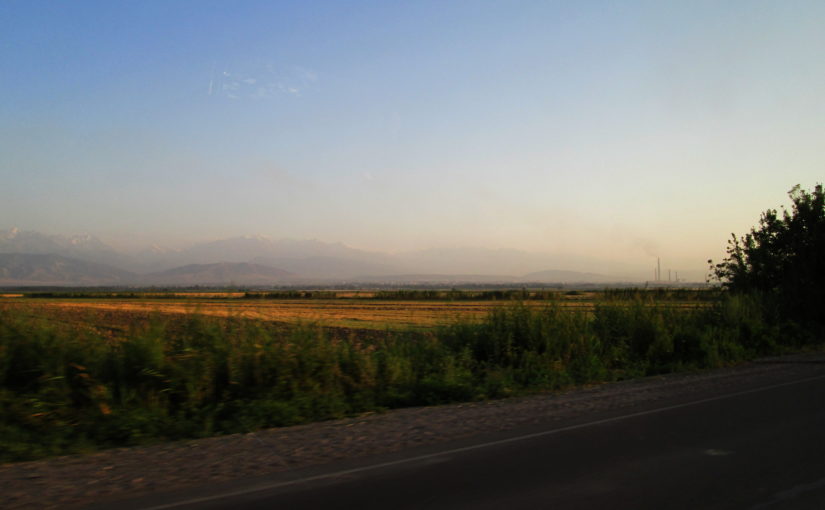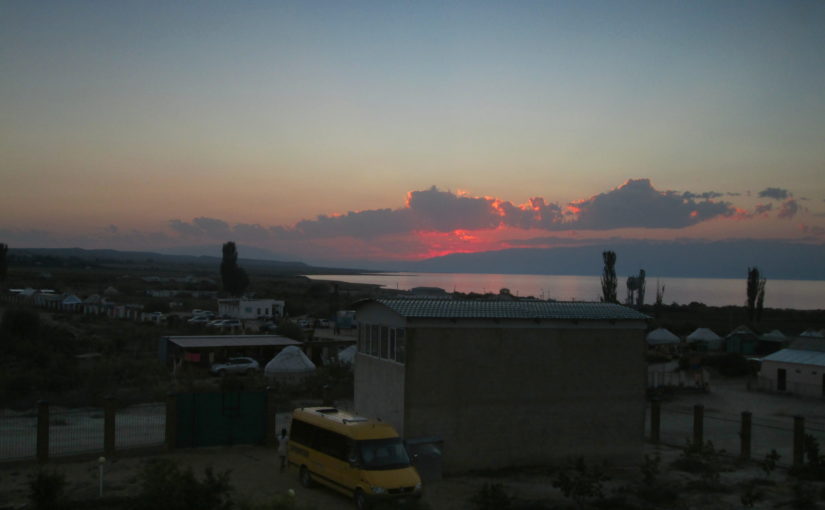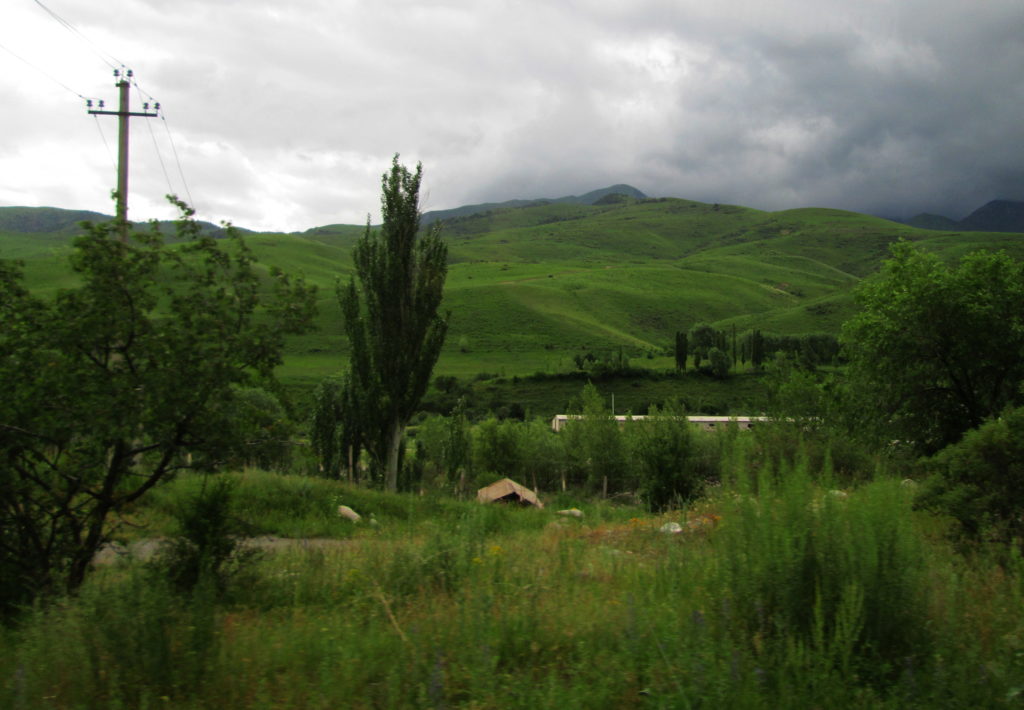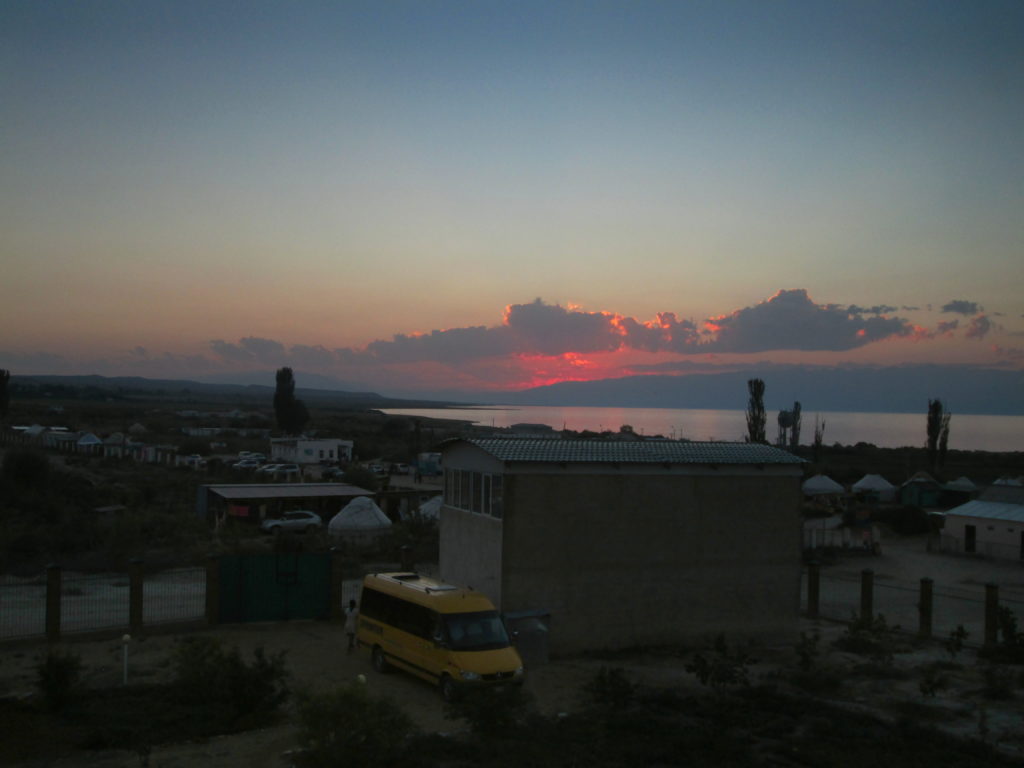“I was stolen”
While casually conversing with Nuraida (Nuraida is not her real name), a married Kyrgyz acquaintance of mine, I brought up how some of the other students were joking about bride kidnapping and it bothered me. I Google-translated the word for ‘bride kidnapping’ and showed it to her on my phone (by the way, it’s not correct on Google translate). Nuraida immediately began laughing and, with the expression of someone telling you about something that had been bad in the past but in retrospect seems lighthearted and funny, told me that she had been stolen (kidnapped).
Immediately afterwards, Nuraida said that, if she had never been kidnapped, she never would have gotten married and had a family because she had been so focused on her work. Her parents and the parents of her husband worked together. Like someone relating a joke, she told me that they had their first meeting, then the next meeting was when he came to visit her at her house, and then their third meeting was when she was kidnapped. The joke would be that he kidnapped her after only meeting her twice.
For the most part, Nuriada was lighthearted and cheerful throughout the conversation. When we discussed the possible problems of bride kidnapping, she would smile nervously and knock on wood. A few times a serious look overcame her face, such as when I asked her to recall how she felt when she was first kidnapped, but overall she was very cheerful. When she told me that she wouldn’t allow her son to kidnap a bride, he happened to be in the next room over and she called to him and told him that it was forbidden and he responded with the same “Of course, Mom,” voice that teenagers always use when their parents give them advice for the future. Her lighthearted attitude was free from any sign of regret, anger, or unease.
Nuraida even somewhat defended the practice of bride kidnapping. That really helped me to distinguish what is intrinsically wrong about bride kidnapping and what seems wrong only from an American perspective. She told me that her sister, whom I had met just the day before, had been bride kidnapped, and at that moment I recalled how I had a friendly conversation with her and her husband, both of whom seemed very happy and friendly, and whose son is absolutely adorable. She pointed out that she, as well as two of her sisters and a friend of hers that all had been bride kidnapped, are now living happily and have many children. She said that, of course it doesn’t always end happily, and sometimes the wife and husband fight and it ends in divorce, but marriages of love can end the same way. It’s about a 50:50 ratio of happy marriages to unhappy marriages from bride kidnapping, she told me. Bride kidnapping and free love can both end in difference and divorce, she pointed out, and then knocked on wood.

I asked Nuraida to relate to me what happened after she was bride kidnapped. She didn’t go into details, but she told me that at first she was very unhappy. But there was nothing that she could do about it. “I did not love him, but what could I do?” Most Kyrgyz consider being bride kidnapped to be like a first kind of marriage, and Nuraida told me that, if she had refused to marry him and returned home, then people would say that she had already been married and she would have been shamed. I asked her if she loved her husband and she laughed and said that it took a long while, but, yes, she came to love her husband. She decided to marry him and wrote a letter to her mother saying that she was alright and that she was getting married, and they were wed a month after the kidnapping took place. Apparently it is tradition for the kidnapped bride to write such a letter to let her parents know that she is okay; if no such letter is sent, it means that she is not okay. At some point in the conversation she made a point of saying that her husband is very peaceful and polite, which, as far as I could tell (I had not interacted with him much) was true. I believe that she did this to show that not all bride kidnappers are the wild, uncivilized savages that the media portrays them as.
Now they are in their forties, but Nuraida was 27 and he was 28 when she was kidnapped and they married. She had finished her eight years of study to become a doctor and was already working as a doctor. She still works as a doctor. She pointed out she was quite old to get married by Krygyz standards: in Kyrgystan women get married usually before 23 and men before 25. She said that it is rare for them to get married in their teens, which conflicts with what I learned in later conversations on the subject, where girls as young as 18 and even 16 are kidnapped.
I asked Nuraida what she would do if any of her daughters, whom I had also met, were bride kidnapped and, after nervously knocking on wood, she said that that would not happened because they live in the city, and that they would have to make their own decision about what to do: to agree to marriage or to call the police to rescue them (by the way, her husband was a policeman when he kidnapped her). She said that the kidnapped woman has the resources to be able to call the police to rescue her–the woman has choices. She said that, if her daughter wanted to get married to someone and she (her mother) disapproved, then her daughter could let herself be ‘kidnapped’ by her lover in order to be able to marry him.
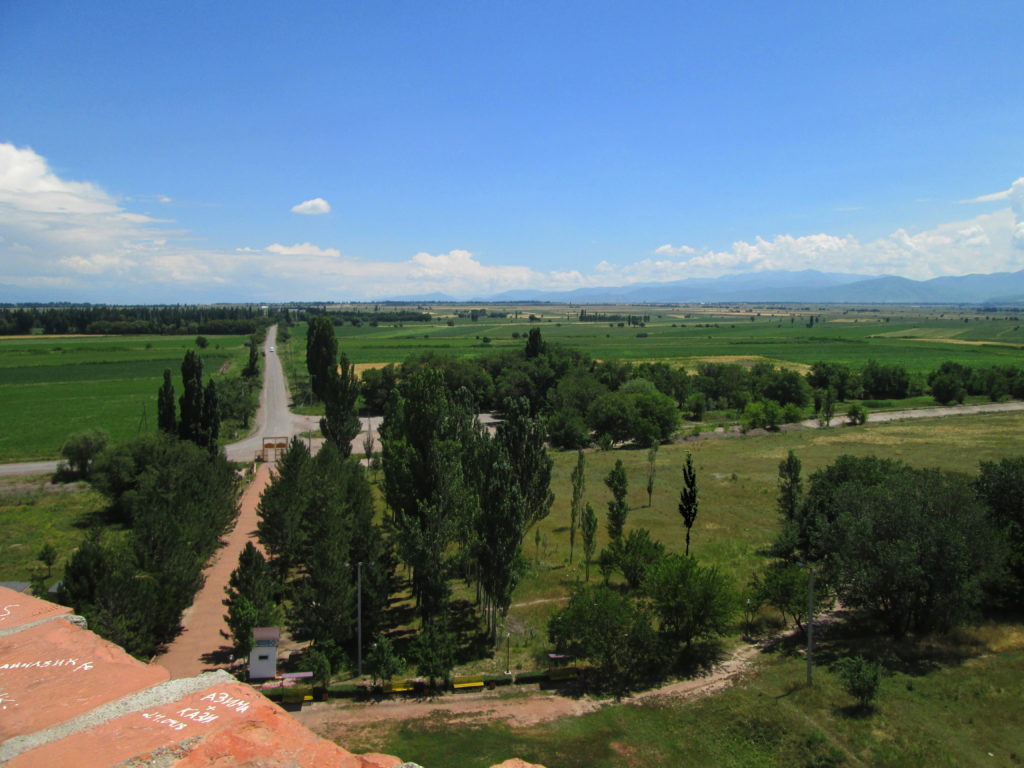
Nuraida told me not to worry about being bride kidnapped because only native Kyrgyz are kidnapped and then only in the villages, not in the city. And since I resemble a Kyrgyz, she advised me that, if while I was at Issyk-Kul, in the country outside of the big city, and began to be bride kidnapped, I should start yelling in English and then they will realize that I am a foreigner and stop kidnapping me. Nuraida laughed about that and I laughed too, because it seemed so ridiculous, like a comedy: the men start kidnapping the girl and then realize that she’s not the right kind of girl so they put her back and everything is alright.
But at the end of the conversation, a pensive look came into her eyes and Nuraida said that bride kidnapping isn’t right. “Такая кража — неправильная” (‘takaya krazha — nepravil’haya’ – this kind of theft (kidnapping) is wrong) But then she smiled and pointed out that she has four children and a happy family. However traumatic the experience might have been for her, and it seemed like it had been rather traumatic, she had come to peace with it.
The conversation unsettled me, but I couldn’t tell if it was because I found it sad to see a woman justifying a wrong done to her in the past, or because it challenged so much of what I assumed about love. Both Nuraida and I agree that bride kidnapping is wrong and do not wish it to happen to anyone. But she pointed out that it isn’t all bad: many happy families come out of it, and many unhappy families come out of marriages of love. I guess if the end result on the family is what matters, then the method by which the marriage is arranged is not of great importance. Free love is a big deal in America, but if the purpose of a marriage is to remain together and create a happy family, then free love is not of great importance because it is not required for such a marriage to be created. Many marriages in both America and Kyrgyzstan end in divorce.

Conclusion
In Kyrgyz culture, the measure of a good and successful life is having a good family with many children. Therefore, Nuraida, measuring her life by the measure of her culture, honestly believes that she has a good life, regardless of the trauma of her past. She also believes that, if she had not been kidnapped, then she would not have gotten married and had a family, meaning that her life would not have been successful and happy. She sees her kidnapping as something bad that ended in good.
In American culture, choice and freedom are first and foremost. Therefore, it is very difficult for an American like me, or like the reader, to imagine how one could come to terms with having such an important choice taken away from them. All of the people that I spoke with, as well as I, agreed that bride kidnapping is a horrible wrong and should not happen. However, Nuraida was not going to let that define her life. She looks at her children and sees that she has a good life and is happy. Is it Stockholm syndrome? Is it just a coping mechanism? I don’t know. But I have met her children and they are beautiful and that she is a wonderful person and it seems as though she and her husband do love each other.
The difference of emphasis on freedom and family also helps to explain the responses of the other people that I spoke with. The man that I spoke with placed the wrongness of bride kidnapping in the fact that it is ‘stupid’ and ‘nonsensical,’ not that it violated women’s rights. If family comes first, then marrying someone with whom you have a low chance of creating a happy family is terribly wrong and irresponsible. The violation of the right of choice of the woman is also a problem, but secondary to that violation of the importance of family. The younger two women that I spoke with had more progressive views of the situation. One was furious that her relative was stolen and stated that she would walk out if she was ever kidnapped. However, she also very carefully explained to me why women marry their kidnappers: because they are afraid that they will never be able to get married otherwise. This shows that those women place marriage and a future family above their own freedom of choice and desire for free love. Of course, the choice is unjust and motivated by fear and many women do not choose to stay with their kidnapper. It seems like misogyny to refuse to marry a woman that has been kidnapped before and to place family above the individual rights of the woman. The fact that many kidnapped women did choose to stay with their kidnapper shows that marriage and family are more important to the Kyrgyz than freedom, for better or worse.
Language-wise, I learned a lot about the passive construction from these conversations. Where, in English, I must say, “someone kidnapped her” in Russian I can simply say “her kidnapped” (this is equivalent in meaning to the English construction “she was kidnapped”). This construction, in my opinion, makes the ‘kidnapper’ even more mysterious because he does not have a noun in the sentence referring to him. The woman is the victim of some mysterious force, revealed only in the fact that ‘kidnapped’ is in the masculine past-tense. I also found myself at an impasse regarding my low conversational skills. While I was able to ask the simple questions that I wanted to ask, I did not know how to ask them tactfully, and that made me feel awkward while conversing with them. However, all of the people that I spoke with spoke freely and did not seem to mind my direct questions.
Also, I was surprised to find that conversing on such a strange and unique topic required very little new vocabulary. All of the conversations used the usual vocabulary regarding family, necessity, motion, and theft. As I stated before, the Kyrgyz do not use the word for ‘abduction’ or ‘kidnapping’ ( похищение – pokhischeniye) when discussing bride kidnapping; they use the word for ‘to steal’ (украсть – ukrast’) and for ‘theft.’ (кража – krazha) (Google Translate and Wikipedia give ‘похищение невесты’ for ‘bride kidnapping’, so perhaps that is the technical term, but in Kyrgyzstan ‘кража невесты’ is used.)
Lastly, I am always afraid that I have misunderstood and misrepresented something that they have said. Understanding conversations relies heavily on utilizing context clues. However, when dealing with such a sensitive topic, assumptions can be dangerous. Also, it is difficult to utilize context clues in such a strange and unfamiliar topic. Several times, I thought that I understood what they told me, based off context clues, but when I repeated back to them what I thought that they meant, they corrected me and showed that they meant something completely different, hinging perhaps on a word or grammatical construction that was unfamiliar to me.
